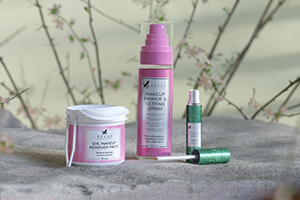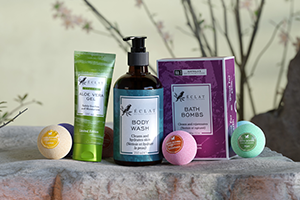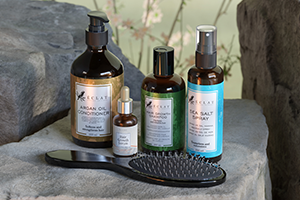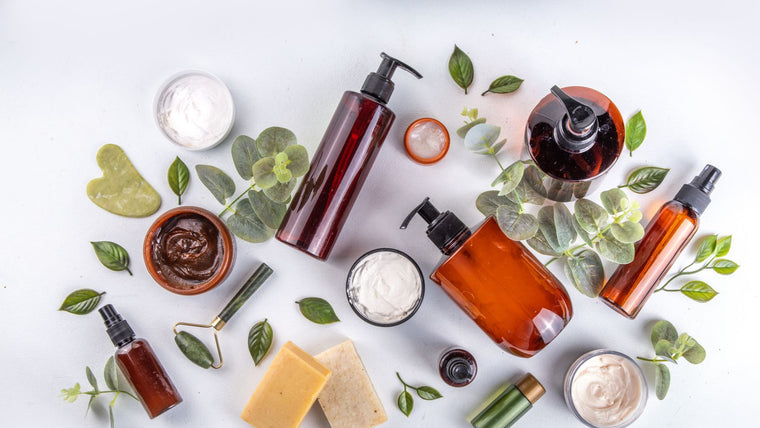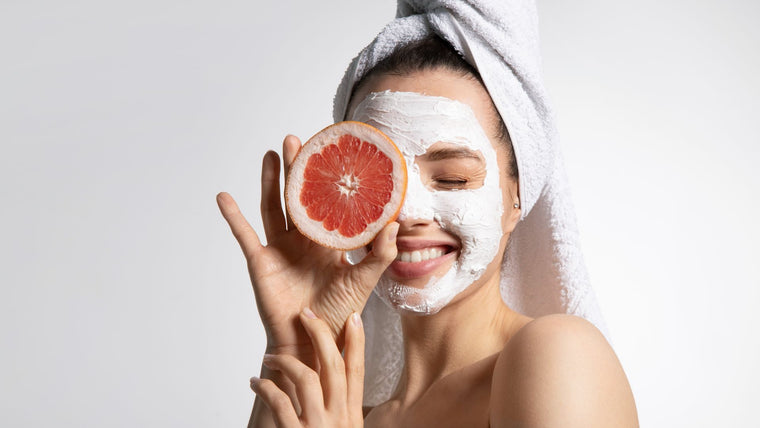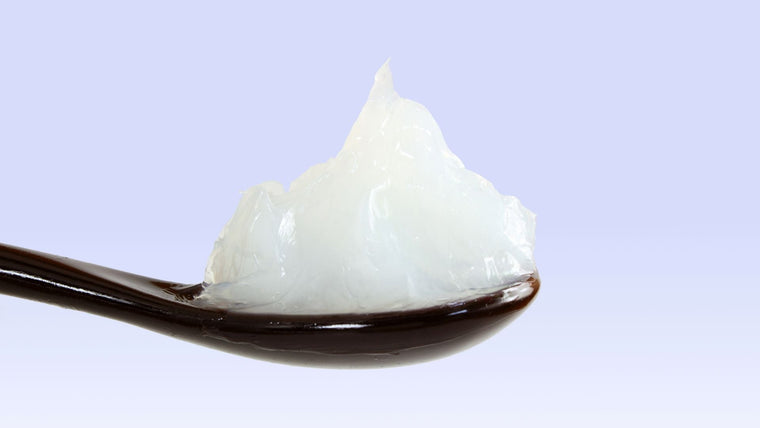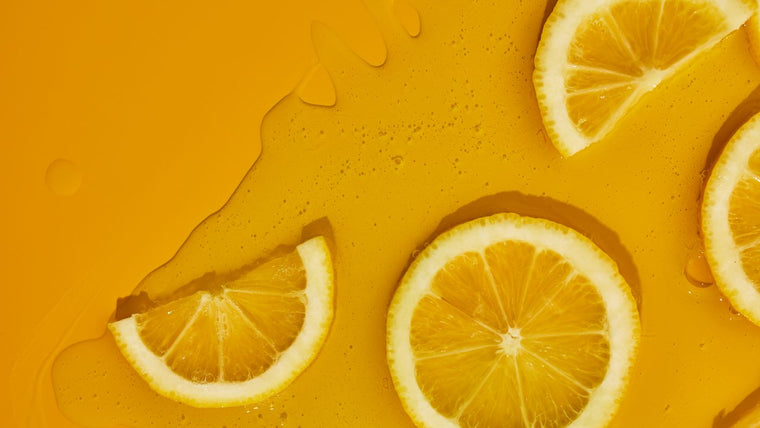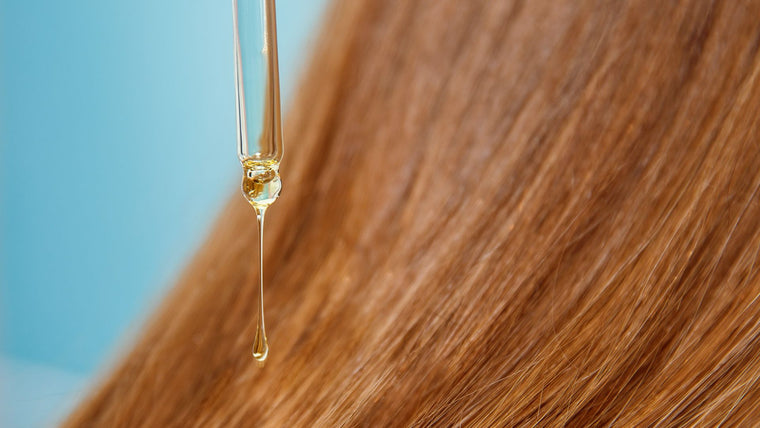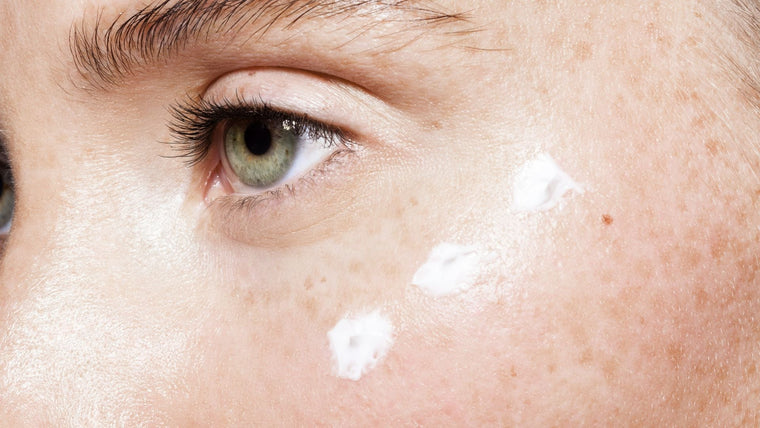The Ultimate Guide to Beard Oils
- 11/08/2023
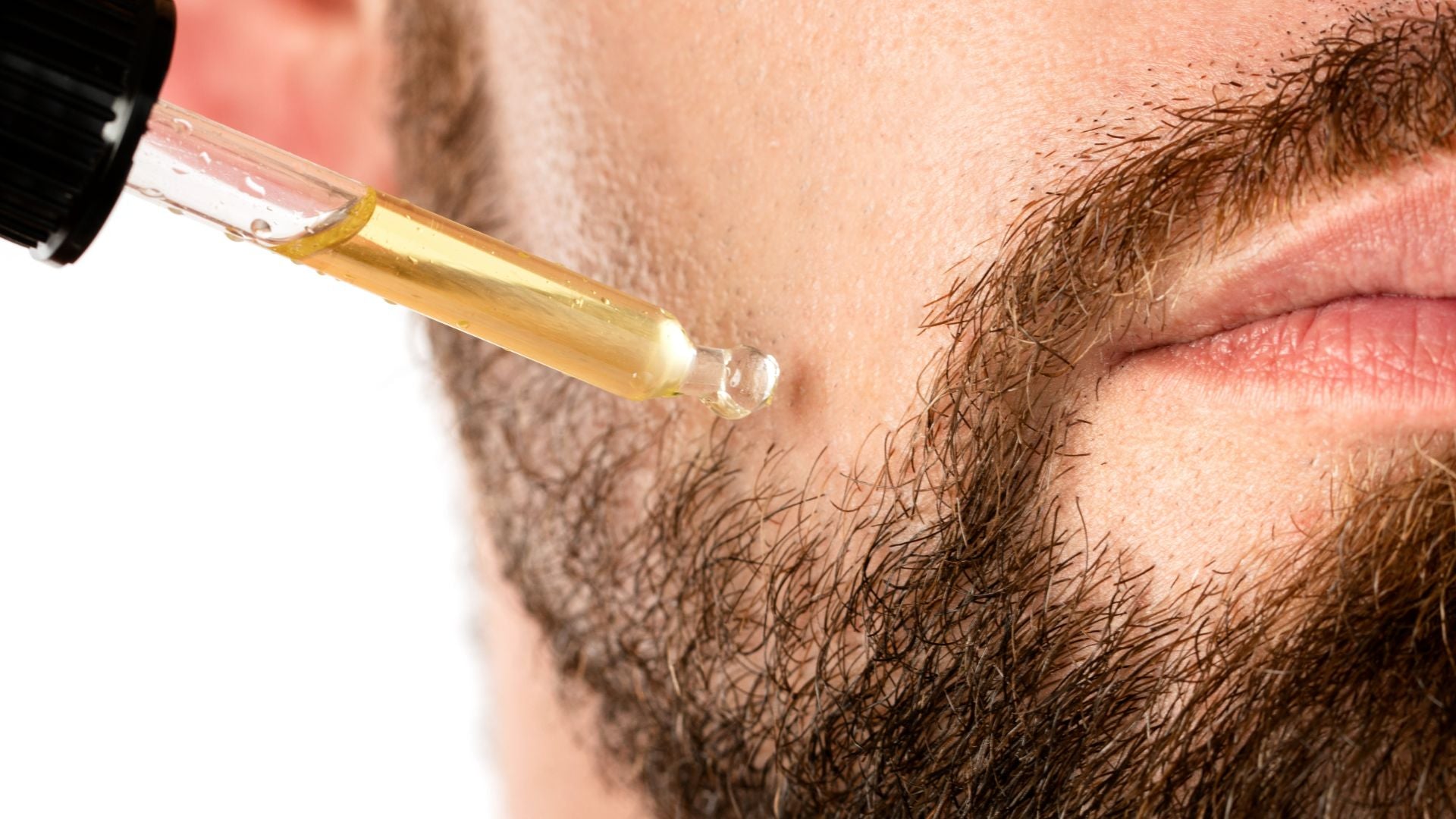
Speak to any grooming expert and they'll tell you the same thing: The line between a groomed and an untamed beard is finer than you might expect. That's because growth isn't the only factor to consider when it comes to facial hair—proper care is also important if a full, healthy beard is your goal.
That's where beard oil comes in. If you're new to the beard game and want to make sure your new style looks fresh, rather than frazzled, we're here to help. In this article we'll talk through why beard oils are an excellent tool to keep your facial hair well-groomed and your skin nourished. Plus, we'll help you find the best beard oil to use.
What is beard oil?
Let's start this guide to beard oil by covering the absolute basics. What is beard oil? Well, for the sake of simplicity, you can think of it as being like a conditioner, just like the type you might use on the hair on your head. But here's the thing that people sometimes don't realize about beard oil: It works on both your skin and hair.

Yep, beard oils nourish both your facial hair and the skin beneath your beard. By tackling the hair follicle and your epidermis (a.k.a. the top layer of skin), they do double duty to keep you looking and feeling good.
As their name implies, these grooming products have an oily consistency. This can sound off-putting—particularly if you're prone to oily hair and skin–but don't panic, because modern-day beard oils are lightweight, non-comedogenic, and fast-absorbing. Some have a light scent, usually due to the essential oils in their formulas. Which brings us to another popular question...
What is beard oil made of?
The ingredients in beard oils vary, but you'll know you're on to a good thing when you pick one that contains a handful of nourishing essential oils. The best beard oil types will contain at least one (and the more, the merrier!).
Popular essential oils used in beard oils
Jojoba oil: Jojoba oil is pretty similar to the natural oils found in your skin, so it's suitable for all skin types. Containing restorative nutrients like B vitamins, vitamin E, iodine and zinc, it packs a punch when it comes to nourishing your skin and hair.

Argan oil: As it's high in fatty acids, antioxidants, minerals, and vitamins, it's no surprise that argan oil is a popular choice in treatments for the hair on your head. Naturally, it's a great pick for beard hair, too: you'll notice stronger, softer strands after using argan oil in your beard care routine.
Grapeseed oil: Grapeseed oil has similar properties to jojoba oil but, pleasingly for anyone who has oily skin, it's known to be non-comedogenic and pore-purifying due to its high linoleic acid content. So if you're prone to congestion and breakouts and want to give the skin beneath your beard some TLC, see what grapeseed can do for you.
Avocado oil: This natural oil is full of beneficial oleic acid and monounsaturated fats, meaning it can penetrate right into the facial hair shaft to quickly improve the appearance of your beard (think smoother, glossier hair with less frizz).

Sweet almond oil: There's a reason why sweet almond oil is a popular fixture on the ingredient lists for beard oils: it's a rich source of protein, biotin and magnesium. If you're looking for a longer beard, this tried-and-true natural ingredient will help to encourage hair growth.
It's worth noting that most beard oils contain a mix of carrier oils and essential oils. So some of the ingredients we've listed above (in particular, sweet almond and avocado) will actually function as carrier oils in the formula.
The main difference between carrier and essential oils is that the latter can't be used directly on the skin. Beard oils comprise mostly carrier oils for this reason—nobody wants skin irritation! Essential oils are highly concentrated, so they tend to be blended into beard grooming products in small doses. But even in such modest quantities, they're powerful enough to nourish and fortify your facial hair.
Which other ingredients are good in beard oil?
Before we wrap this section up, there are two other natural ingredients we wanted to mention: aloe vera and coconut oil. They're not oils, but they'll certainly help to contribute to good beard days!
First up, aloe vera. You'll frequently find it in the best beard oil formulas because of its calming and moisturizing properties, which benefit both your skin and beard. It contains a pretty impressive 75 active nutrients—including antioxidants, minerals and amino acids—so it's sure to make your beard softer, while keeping the skin underneath more hydrated and less irritated.

Finally, coconut oil. Treat your beard with this stuff and all sorts of good things can come from it. For example, it'll condition hair from the inside out, reduce annoying beard itch, minimize dandruff, fight bacteria throughout the day, and possibly even promote growth. Simply put, coconut oil is a treat for your skin.
What does beard oil do?
We've briefly touched on the functions of individual essential and carrier oils above, but what about beard oils as a whole? What do these formulas do?
A beard oil works by moisturizing and conditioning the facial hair you already have, while also going deeper. By reaching hair at the follicle, it encourages any new hairs that emerge to be stronger—and it may even be able to make your beard grow faster! The best beard oil formulas are lightweight enough to penetrate the skin beneath the hair, creating stronger foundations for healthy beard growth.
Read on to learn more about the benefits of beard oils (spoiler: there are more than you might think!).
What are the benefits of beard oil?
- It nourishes your beard. One of the first things you'll notice after using beard oil is that your hair strands feel silkier and fuller. It's all thanks to those nourishing essential and carrier oils. Bye bye, dry beard.
- It tackles beard dandruff. For best results, look out for beard care featuring jojoba oil—it'll balance the excess oil production that often triggers those white flakes.
- It takes the edge off beard itch. As it's hidden away, the skin beneath your beard is generally more prone to dryness and irritation. That's why beard itch is so common. Nourishing essential oils like argan and avocado will keep both your beard and skin hydrated and calm.
- It keeps your beard clean. Obviously, washing your beard is a routine hygiene thing. But if you like an extra-fresh feel throughout the day, a beard oil with antimicrobial carrier oils—like peppermint, patchouli and sandalwood—will keep your beard clean.
- It soothes dry skin. Your hair and skin are equally important when it comes to beard growth and upkeep. A strong, hydrated epidermis is the perfect canvas for a lustrous, full beard to grow from, so avoid dry skin at all costs! For some 2-in-1 magic that treats your hair too, try a high-quality beard oil.
- Finally, it just makes your beard look great. Once you've found the best beard oil for you, you'll be one step closer to nabbing that GQ cover shoot. For real though, you can look forward to more glossy, vibrant-looking facial hair without tangles, split ends, and brittle strands.
Do beard oils help with hair growth?
Our guide to beard oil wouldn't be complete if we didn't touch upon beard growth. And we get it, when you're growing a beard, there's nothing worse than that in-between phase where you're praying every morning to wake up to a less-patchy look. During these times, you're probably willing to try every single beard balm, oil, or other elixir that promises faster growth.

So is it true that beard oil helps with growth? It can, but not directly. And you're certainly not going to grow a beard overnight with this stuff. The thing is, hair growth—and, more crucially, the speed at which it grows—is largely down to genetics.
So even if you're using the beard beard oil out there, we're sorry to be the bearers of bad news, but no amount of beard-care product is going to change your body's natural makeup.
However, regular use of beard oils creates the optimal conditions to encourage healthy hair growth. Your average formula is full of antioxidants, proteins, key vitamins... all the good stuff that nourishes right down to the root, reverses any damage, and strengthens hair.
Stronger hair grows better, and faster. Plus, a nourishing beard oil will give facial hair a fuller appearance (so you'll look like you have more going on in that chin area), while also bringing much-needed hydration to the skin underneath.
To summarize, if healthy beard growth is your goal, then a restorative, moisture-locking oil will help to speed up your journey.
How to apply beard oil
If you've decided to start using beard oil, there are a few need-to-knows about its application. Here are our tips:
1: Wash your beard
The best time to apply beard oil is after a nice hot shower. Why? Your pores will be open, meaning your skin and beard will be more receptive to absorbing whatever you apply to them. If you're in a rush, you can skip the shower by simply wetting your beard and the surrounding area with warm water instead, but we recommend using beard oil on properly cleaned beard hair, so the essential oils and other goodies can penetrate better.
2: Dry off
Oil and water don't mix, so give your beard a dry as the next step. Pat the area gently with a towel.
3: Rub in your beard oil
Apply a few drops of beard oil to the palm of your hand. Go for more if your beard is particularly long or thick. On the flip side, if you're in the early stages of growth then be wary of using too much beard oil. A single drop might be all you need at this point.

Rub your hands together to warm the formula up, then massage it in carefully. Apply beard oil from root to tip, and don't forget to cover the skin underneath too. Making sure to evenly distribute the oil is key here.
4: Massage the rest into your skin
The best beard oil formulas are packed with powerful nutrients, like vitamin E, that work wonders on your skin as well as your hair. The natural oils inside beard care products are usually selected for being non-comedogenic, so they won't clog your pores or cause breakouts. However, if you're acne-prone, we always advise checking the label first—just in case.
5: Grab your beard brush
Using a beard brush or a comb is the final step. Work one through your beard hair carefully to brush out the remaining beard oil and to sculpt those strands to your desired shape. We recommend a boar's hair brush for best results.
How often should you use beard oil?
The best beard oil formulas are potent enough that you don't necessarily need to use them every day, but the frequency at which they're used is a personal thing. It depends on a few factors, namely how oily your skin is, what condition your beard is in, and how long it is.
If you have a longer beard, you'll want to treat it with beard oil more often, in larger quantities. If you're prone to dryness, wiriness and split ends, you might also benefit from using a good beard oil twice a day (morning and night). If, instead, you have oily skin—and hair to match—you'll probably prefer to apply beard oil only a few times a week.
Can I use beard oil with a beard roller or derma roller?
Derma rolling is a type of microneedling treatment that can be done at home. Derma rollers, also known as beard rollers, feature tiny needles that create micro injuries in the skin. It sounds a bit unpleasant, but the needles are so small that they don't cause pain—in fact, most of the time, you won't feel anything at all on your skin. In case you're curious, we've written a whole guide to dermarolling here.

Dermarolling alone will help to give your beard a fuller, glossier look. If you use beard oil after your treatment, it will just prolong these benefits. Apply a few drops of beard oil post-treatment, focusing in particular on the skin below your facial hair. You can also use a beard comb for a more thorough application.
Conclusion (and a final tip)
If we've inspired you to bring beard oil into your routine, why not try ours? Éclat Beard Oil hydrates and tames beard hair and relieves itchy skin. Our conditioning formula features fast-absorbing cold-pressed oils that nourish and protect hair. We also add soothing aloe vera and breakout-reducing tea tree oil.
To summarize, using beard oil will get your facial hair on point. For anyone struggling with unruly, wiry tresses, beard oil helps out with its smoothing, softening properties. It's not just about getting your beard, either: It also helps to nourish your skin if it's prone to irritation, flakiness and dryness. Remember, your skin is the canvas for your beard, so you need to take care of it!


